Janet Mock: Up-Front and Unafraid
The multihyphenate reflects on her past (including her coming out story in this magazine), the present movement for Black trans lives, and how she’s shaping the future of Hollywood.
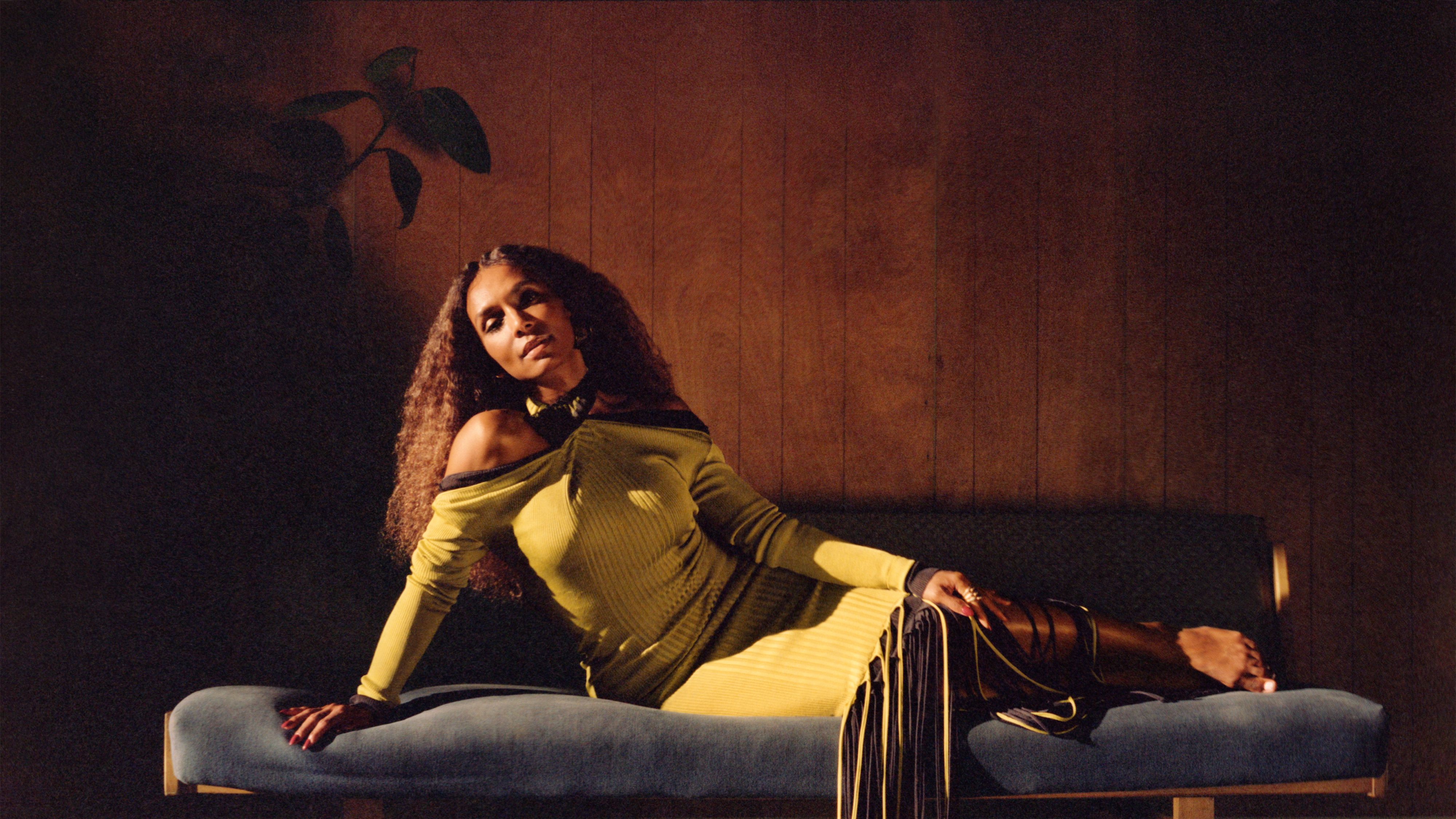
It feels nearly impossible to write a celebrity profile right now. In a pre-COVID-19 world, best practice would have been to fly to Los Angeles to interview Janet Mock in her home. A writer would open with flowery descriptions of her appearance, then maybe write about the time of day or whether Janet likes ketchup on her fries. In a time before the murder of George Floyd, or Breonna Taylor, or Tony McDade, any good writer would dedicate three or four sentences to detailing her blue Gucci cardigan or her perfectly coiffed hair or her shimmering aura. But the reality is, lately I haven’t had the bandwidth to think much about cardigans or minor details; in the three weeks since I interviewed Mock via Zoom video call, seven Black trans women have been murdered. As I reach for important details to help frame our dialogue, I can only think of Dominique “Rem’mie” Fells of Philadelphia; Riah Milton in Liberty Township, Ohio; Merci Mack in Dallas; Bree Black in Pompano Beach, Florida; Shaki Peters and Draya McCarty in Louisiana; and 17-year-old Brayla Stone in Arkansas and how they should still be here today.
To write about Black life right now is to write in equal measure about trauma and triumph. The writer and scholar bell hooks, who is a friend of Mock’s, has said that “language is also a place of struggle.” In many ways, the struggle to find language for this moment has never felt so real. How can we make language that speaks at once of mourning, joy, and fear?
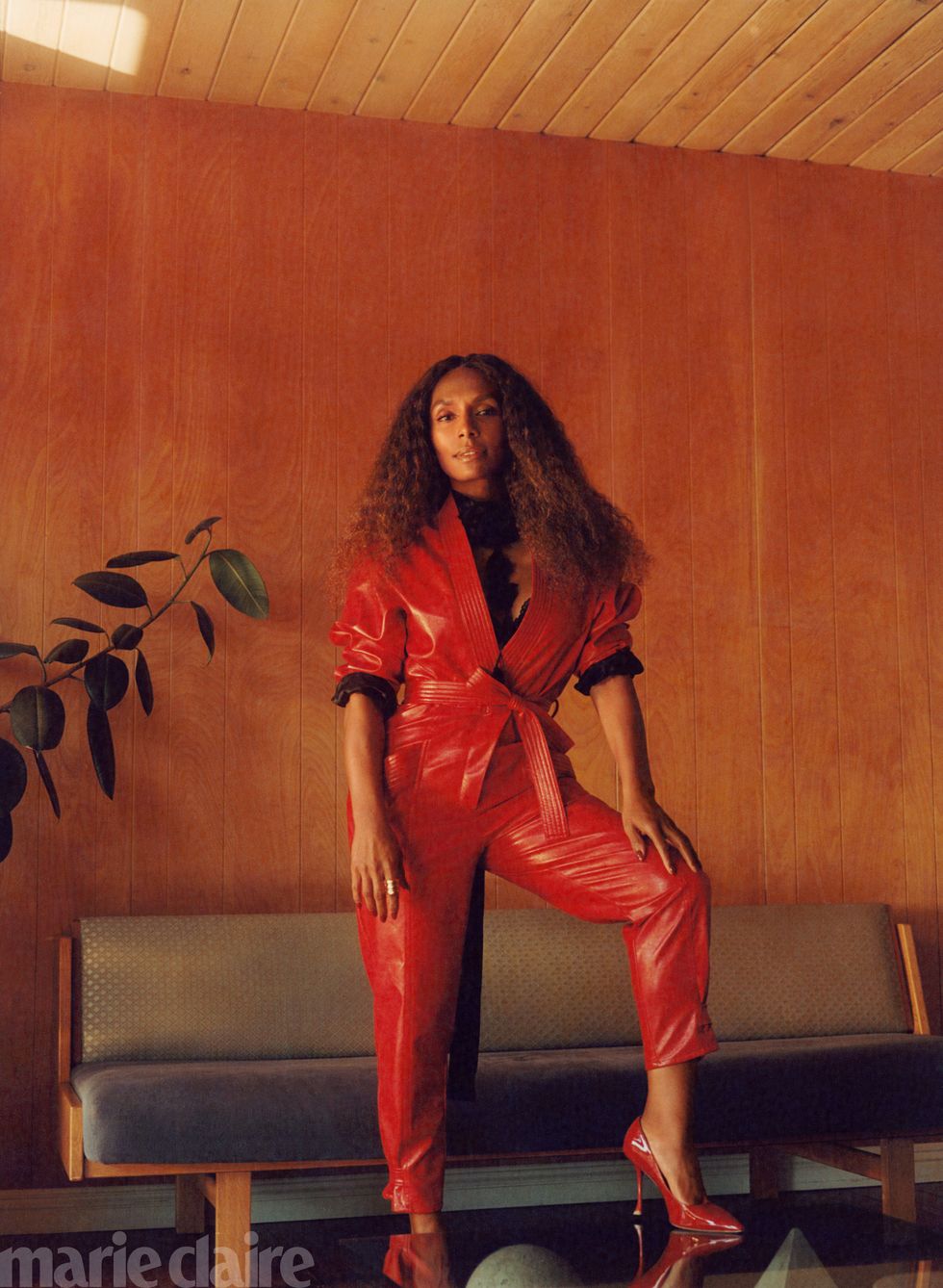
Philosophy di Lorenzo Serafini jumpsuit; Jennifer Fisher ring; Roger Vivier shoes
Language has always been a revolutionary, liberatory tool for Mock, one of the most visible and accomplished Black, trans, and indigenous women of our time. In her first book, Redefining Realness: My Path to Womanhood, Identity, Love & So Much More, she writes, “Living by other people’s definitions and perceptions shrinks us to shells of ourselves.” This passage replays in my head as we begin our dialogue for this publication, the same publication that Janet entrusted with her coming-out story, titled “I Was Born a Boy.”
Mock’s as-told-to essay arrived a few years before the so-called “Transgender Tipping Point” of 2014, or Caitlyn Jenner’s July 2015 Vanity Fair cover. “I remember at that particular time when I decided to do [the story]—because it was an intentional decision, but one that I kind of felt like I backed into, in a way, that did strip me of agency and voice,” she explains now. Behind the scenes, a then-friend of Mock’s had disclosed to a journalist that Mock is trans. A writer herself, Mock had always planned on telling her own story. “It was strategic too—a strategic placement that I’m grateful for and that [the writer] was really supportive of...to make sure that she said in my voice, ‘I’m working on a book to tell my story fully,’” she says. “To have a mainstream magazine say that this is an important story to tell in this particular time...people weren’t really talking about transness in the way that we talk about it now.” Still, Mock’s relationship with the piece has been “bittersweet.”
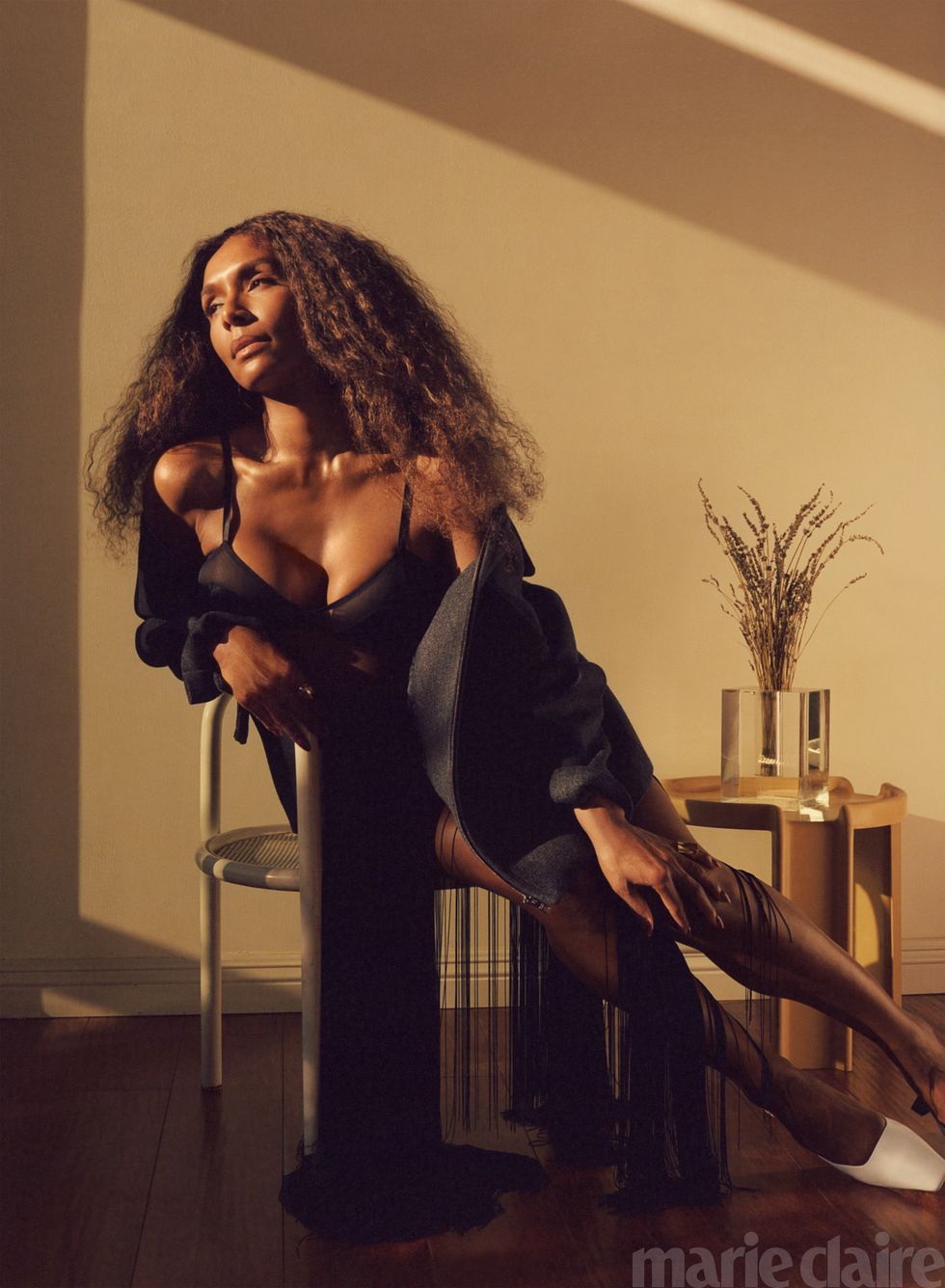
Prada jacket and skirt; Araks bralette; Jennifer Fisher globe ring and crinkle ring; Givenchy shoes
At first glance, the story, which appeared in the June 2011 issue, portrays Mock as your typical girl next door. She sits on the stoop of an apartment in New York City’s East Village. She could presumably be read as any other subject gracing the pages of a fashion magazine. But because of the word choice of cisgender editors—the language that they selected for the headline, the largest, boldest words on the page—Mock’s story of coming into her own Blackness and womanhood and transness also became a dramatized story of revealing a deep, and seemingly ominous, secret. “I kind of know how [editors] have to package things in order for [white, cis] people to stop on the page, especially with a Black woman on it,” she says. “So it was that whole drama that they’ve always wrapped trans stories in for so long. Those are the things that still sting me today.”
Revisiting the article nearly a decade later, I wonder how Mock was able to pivot into public life and maintain a relationship with the media. “I have to remember how it was for me at 12 years old not to see myself in that way,” as a successful businesswoman, she tells me. “And so to put myself back in the shoes of a 12-year-old Black or brown trans girl was like, ‘Holy shit, there’s this pretty Black woman who’s living this great life in New York City, and she has a boyfriend and she has a job and she’s smiling on the pages and she’s not killed and she’s not hurt and she’s not being forced to just talk about trauma.’ That little profile meant something.”
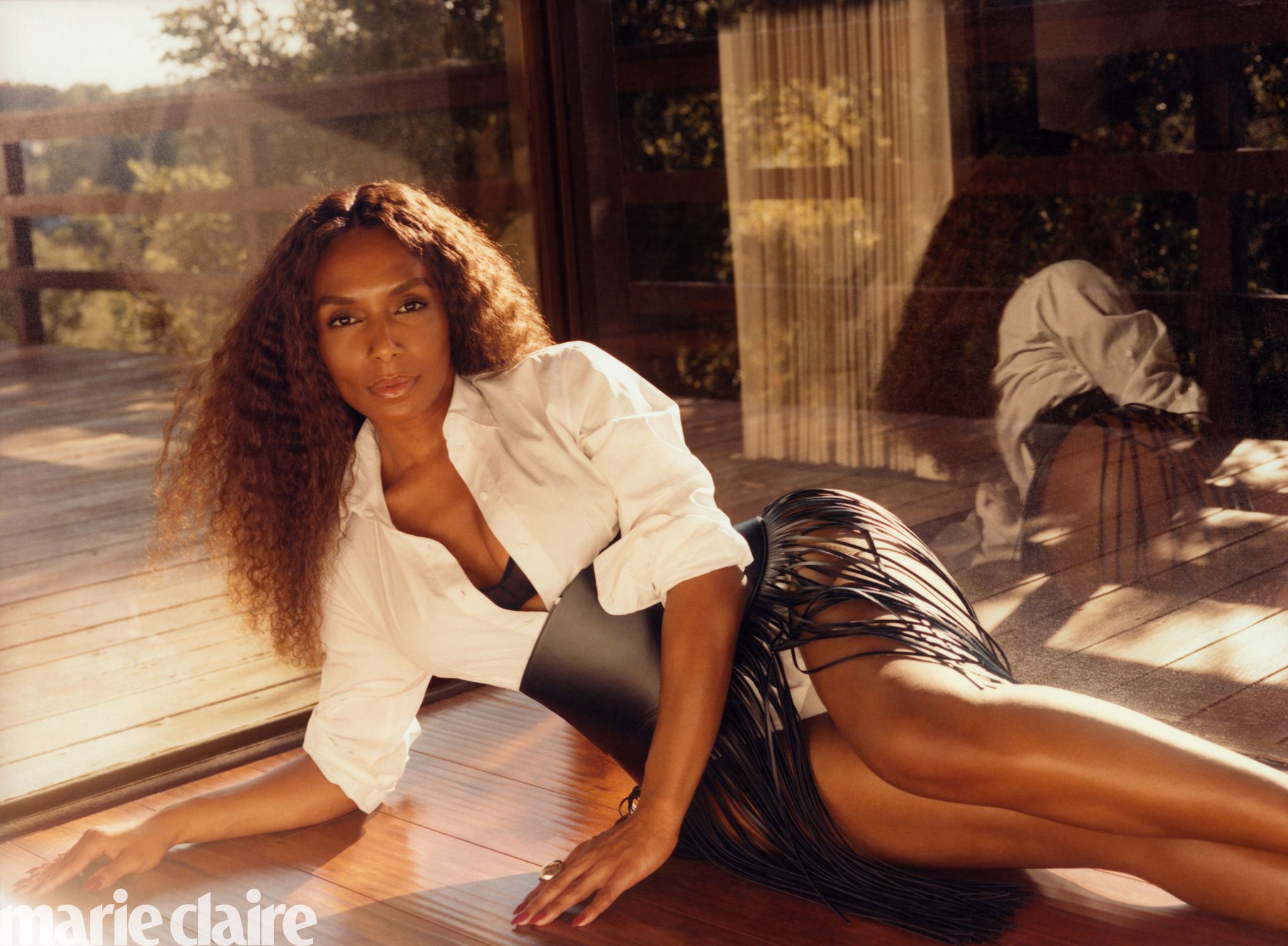
Alaïa bodysuit and leather corset belt; ERES bra; Jennifer Fisher ring
That little profile thrust Mock into the public eye. “That was really the marker of me going from private citizen to then in a way—even thought his wasn’t the intention—becoming a public person who was representative of a community that was rarely seen.” A year later, she launched the hashtag #GirlsLikeUs while tweeting in support of beauty contestant Jenna Talackova, who had been disqualified from the Miss Universe Canada pageant for being trans. The tag went viral—it’s since been used more than 876,000 times on Instagram and 425,000 on Twitter—and became a digital space for trans women to claim their identities on their own terms, to celebrate their extraness, their femininity, and profess their wildest dreams for the future.
Stay In The Know
Get exclusive access to fashion and beauty trends, hot-off-the-press celebrity news, and more.
Mock spent the ensuing years writing two memoirs (2014’s Redefining Realness, which told the story of her childhood in Hawaii, her career as a sex worker, and her romance with her now ex-husband, Aaron Tredwell; and its 2017 follow-up, Surpassing Certainty, about her 20s in New York), working as a contributing editor for this magazine, advocating for trans rights, and touring as a public speaker. By living her life in the spotlight with grace, Mock has used her platform to present and complicate often oversimplified narratives of what it means to be trans. At just 37, she’s inspired an entire generation of gender-expansive folks to dream more boldly about our personal and collective futures.
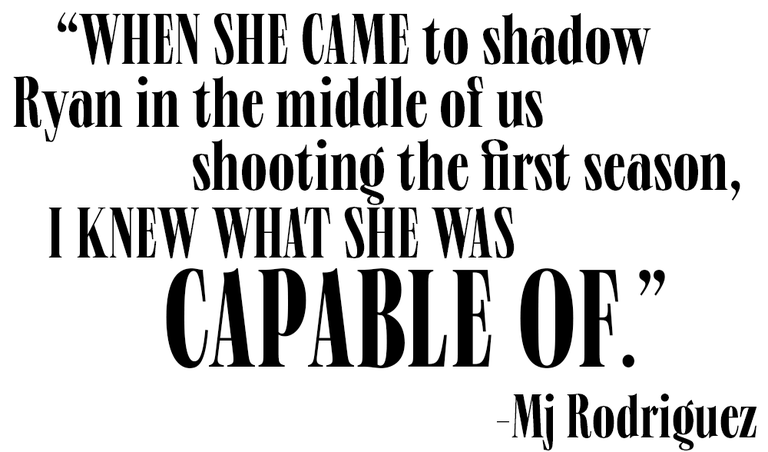
Today, Mock is spreading her wings as she masters the world of film and television. Three years ago, TV mogul Ryan Murphy tapped her to be a story editor on what would become the acclaimed FX series Pose. On set, Murphy saw something special in Mock. “He saw me with the actors. He saw how they reacted to me. He saw how we talked to each other,” she says. Mock was quickly upgraded from story editor to a writer and producer. “When she came to shadow Ryan in the middle of us shooting the first season, I knew what she was capable of,” says Mj Rodriguez, who plays the show’s lead, Blanca Rodriguez-Evangelista, mother of the legendary House of Evangelista. “[Mock] respects the actors’ process and trusts us, and for that I greatly respect her.” Mock moved into the director’s chair for the sixth episode of the first season and, in doing so, became the first trans woman of color to write and direct an episode of American television. “[Pose] was the perfect transition to a new industry,” she says.
It was quite the auspicious start. With this year’s Netflix limited series Hollywood, Mock took on the challenge of writing, producing, and directing a third television project. (She also worked on The Politician.) In a surrealist look at the Hollywood of yore, Mock joined her mentor, Murphy, and his collaborator Ian Brennan (of Glee and Scream Queens fame) to queer and reimagine the history of the film industry and show viewers a Hollywood that could have been if people were lauded for their talent rather than their skin color or sexual identity. To depict marginalized people as worthy of recognition, not just the victims of trauma. “I think that my inner skeptic as a Black person, as a woman, as a transperson, I was like, ‘This feels like full-on fantasy.’ And I remember having a conversation with one of my friends, and she was like, ‘But shouldn’t we be able to have fantasy? Isn’t Pose kind of that as well?’ Instead of just turning the lens only on the murder, the violence, the abuse, and the space of lack, you then turn the camera and you say that actually in this space that you see as a space of lack, we’re thriving.”
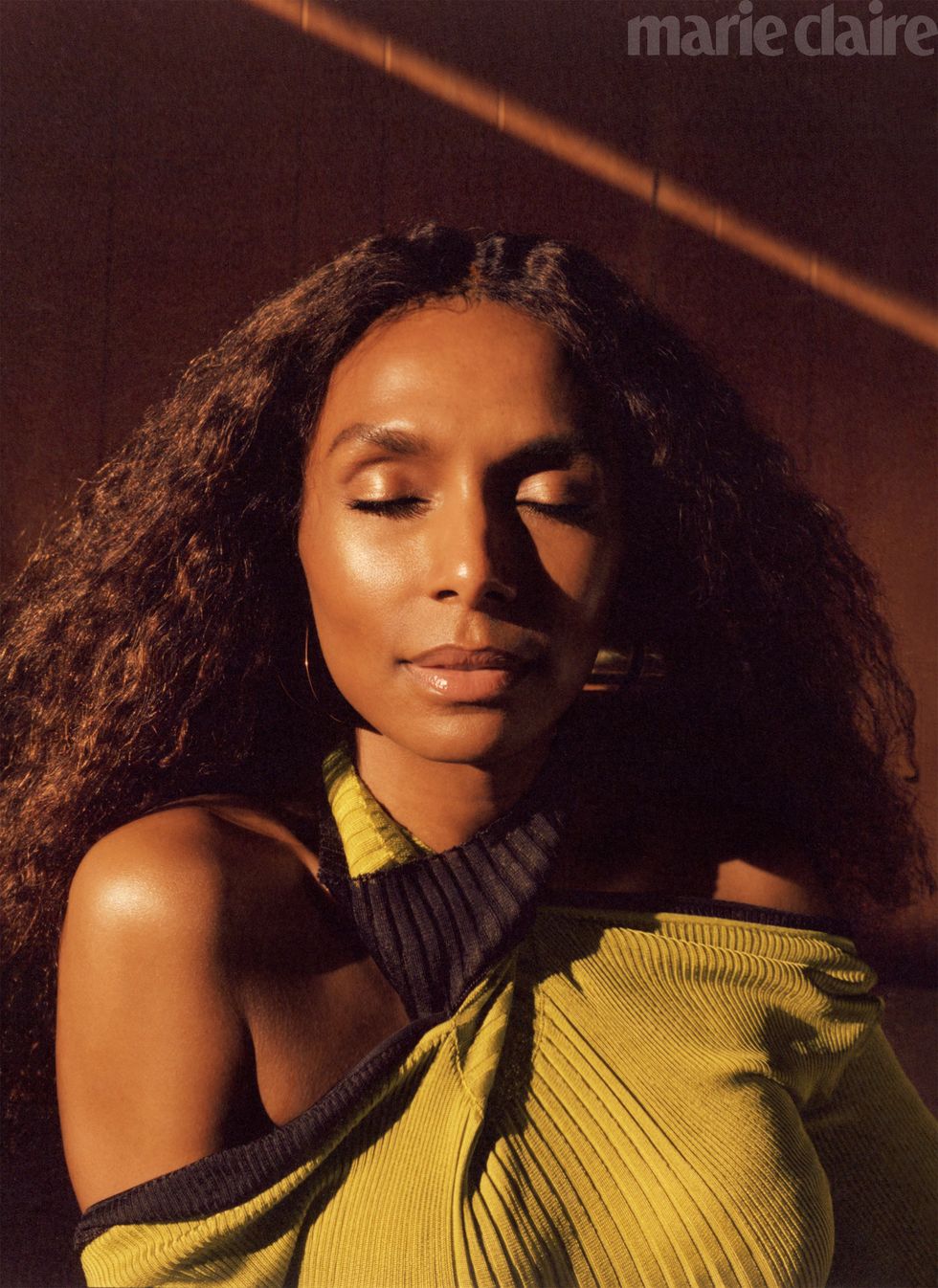
Bottega Veneta dress; Y/Project earrings
For her next act, Mock has been developing stories all her own. Last year, she became the first openly trans woman to ink an overall deal—developing, writing, directing, and producing her own series—with Netflix. (It also included first-look rights on any feature-film projects.) “When I walk into these rooms to pitch shows, when I had to go in and have my initial meeting with Netflix, I was prepared for those moments, and the work spoke for itself,” Mock says of breaking into Hollywood in her 30s. Her first series will likely be a coming-of-age story about a young trans woman and the secrets that she and her college classmates hold. In July, Deadline announced that Mock will direct her first movie, Scandalous!, about the love affair between Sammy Davis Jr. (played by her Hollywood colleague Jeremy Pope) and Kim Novak. Shooting is slated to start this fall.
Though much of the production on season three of Pose has been shutdown by COVID-19, the work continues. During this summer, though, of so much recording of and reporting on violence against Black people, Mock says she feels kind of stuck creatively. This moment—which, of course, isn’t only a moment—is not “necessarily conducive to creating or wanting to create.” she says. “I feel useless in the tactical moment of sitting down at my computer and saying, ‘This is what’s going to help the world right now and help keep Black trans femmes and Black trans women safe.’ It feels irrelevant in the moment of creation, right? It’s not until the product is out that it then has its effects.”
In an effort to take care of herself, Mock turns to her partner, Pose star Angel Bismark Curiel, and her mom and nieces and nephew and dog, Cocoa. She consumes books and television and film, which she says wakens her and makes her feel energized. And she has used the break to learn about a new hobby: collecting art.
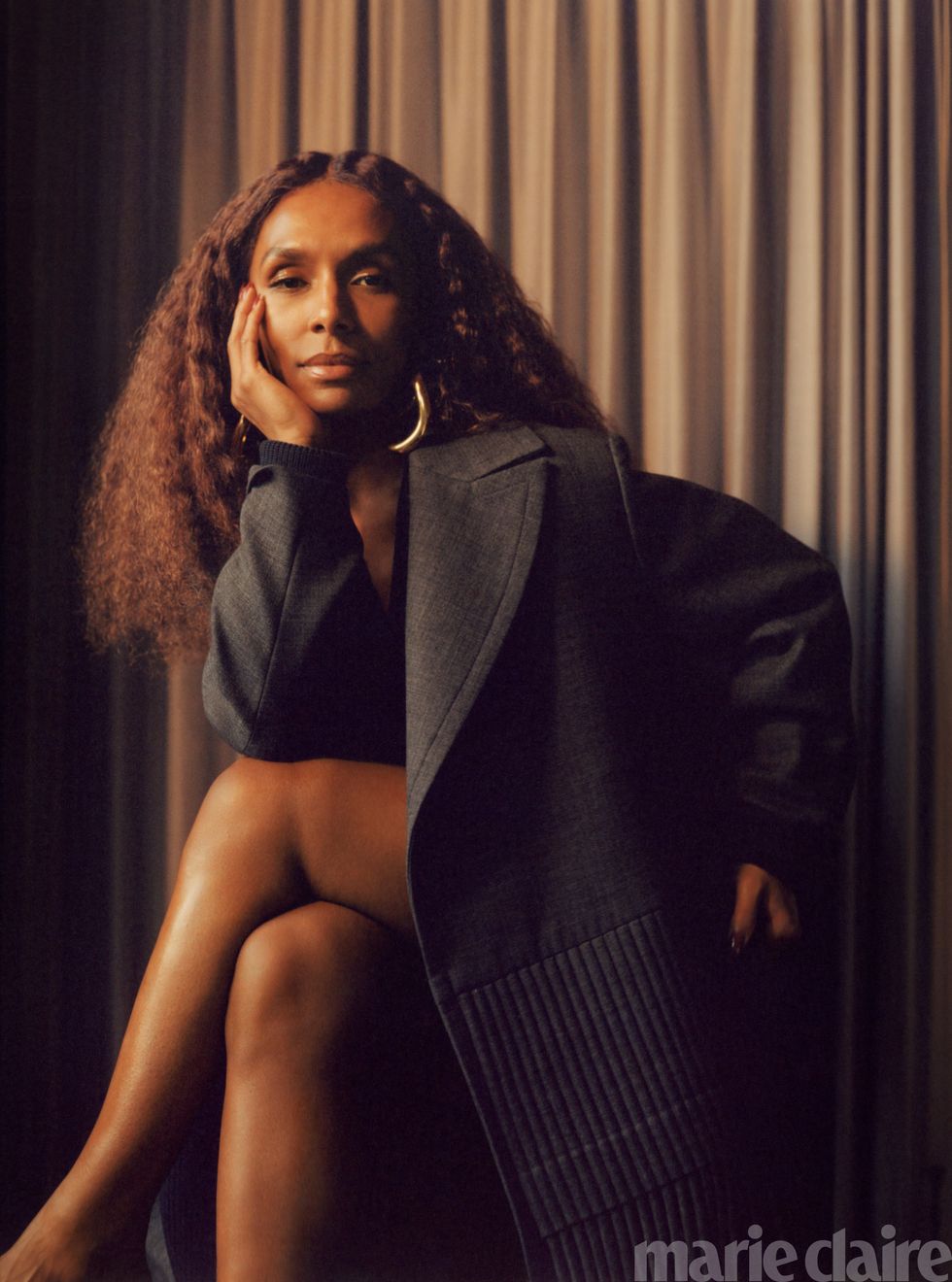
Boss jacket and sweater; Balmain earrings
As our formal interview winds down, our conversation evolves into a friendlier chat about Mock’s budding art collection. Already hanging in the foyer of her apartment is a Gordon Parks print—the first piece of art that she acquired. The photograph, from his “Segregation Story” series, shows a young girl wearing her Sunday best while her aunt drinks from a fountain painted with the words “Colored Only.” “I see it every day when I walk in,” Mock says. “It’s just to set the tone, like, ‘You live in a household that is a Black woman’s home. She owns this place.’” It’s an ethos that was inspired by none other than Oprah Winfrey. “You step into [Oprah’s guesthouse]”—Mock drops the name very casually, but I tease her about her flex nonetheless—“and you see Black images everywhere. It anchors you in the space [in a way that] if a white person walks in here, it’s like, ‘Don’t forget, just because she’s Oprah and you guys say she’s raceless, she’s not.’ And I thought, That’s the kind of home that I want. That was aspirational to me.”
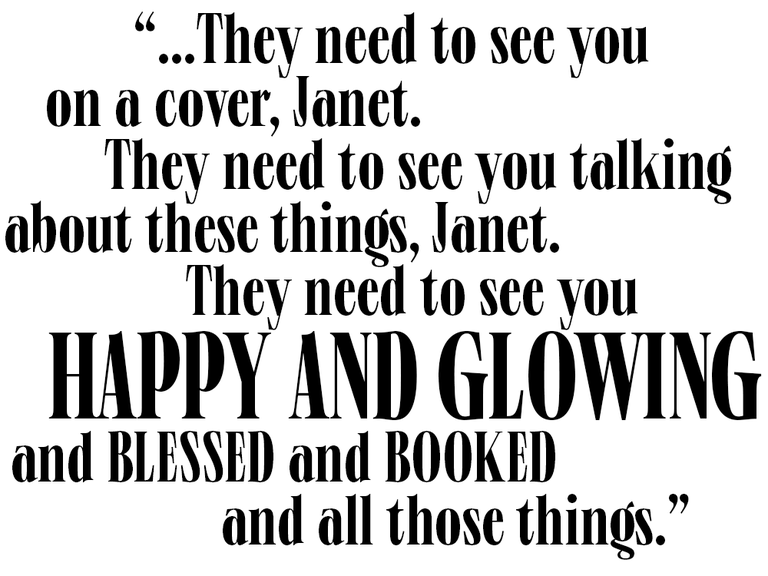
Mock pulls out her phone to show me two pieces of artwork by the Nigerian painter Ekene Emeka-Maduka that she recently acquired. In one painting, one figure’s hair is being braided by the other figure, who might be the subject’s sibling. Both stare with a soft determination. “I’m aiming to use art as a vehicle to support and amplify emerging Black artists who engage politically with art as a location of change,” she tells me.
Mock doesn’t want to be pigeonholed into conversation about Black trans death anymore. She doesn’t want it to be the only sound bite. Yet in this moment of civil uprising—two days after our interview took place, organizers in New York gathered 15,000 people to celebrate Black trans life—Mock’s voice remains crucial in the chorus of Black trans leaders that we should be uplifting. “I’m reminded by my sisters’ work—Tourmaline and Raquel [Willis] and Indya [Moore] and Angelica Ross—that that work”—the creative work—“is necessary and that they need to see you on a cover, Janet. They need to see you talking about these things, Janet. They need to see you happy and glowing and blessed and booked and all those things. They need to see that because if their feeds are all just occupied by death and the reality that they face every single day...it escapes their mind that they’re walking outside.” That little profile meant something in 2011, and Mock’s activism—online, in public, and on screen—since has meant something that language doesn’t adequately capture.
The tides are turning for the better and also for the worse, and so it is no coincidence that now—years after her “coming-out story” and her myriad accomplishments, and after the years it’s taken for the cries of Black Trans Lives Matter to have transformed into a righteous, empowering roar—Janet Mock finally gets the magazine cover story she deserves.
Photographer: Luke Gilford | Fashion Editor: Yashua Simmons | Hair: Kim Kimble at Six K | Makeup: Wendi Miyake for Pat McGrath Labs | Manicure: Diem Truong for Opi at Star Touch Agency | Production: Briana Gonzales
Lead image credits: Bottega Veneta dress; Jennifer Fisher ring
MORE FROM OUR AUGUST ISSUE



-
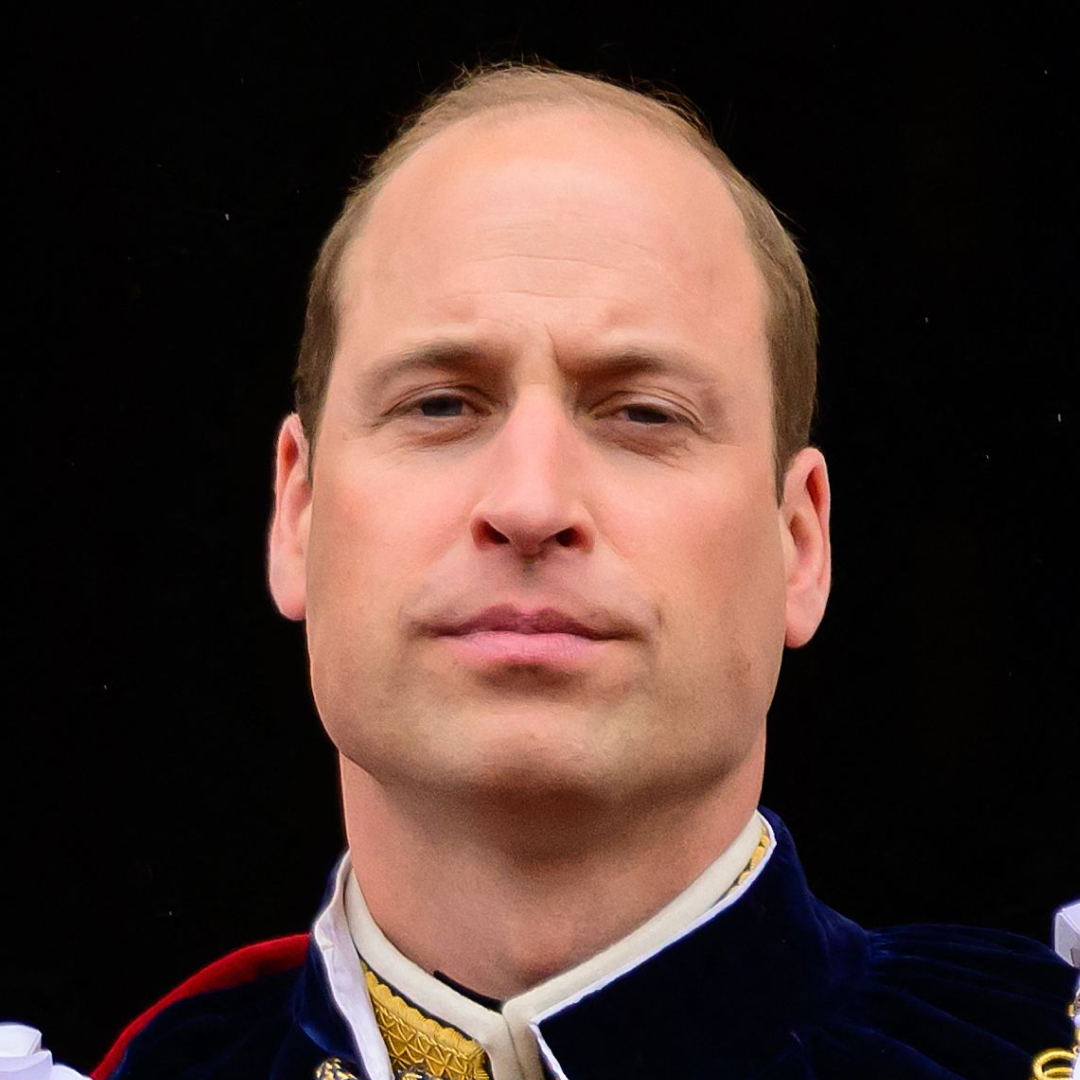 The "Frightening" Easter Prank William Played on Eugenie
The "Frightening" Easter Prank William Played on Eugenie"Prince William has just stood on a chair and bitten the mouse's head off."
By Amy Mackelden
-
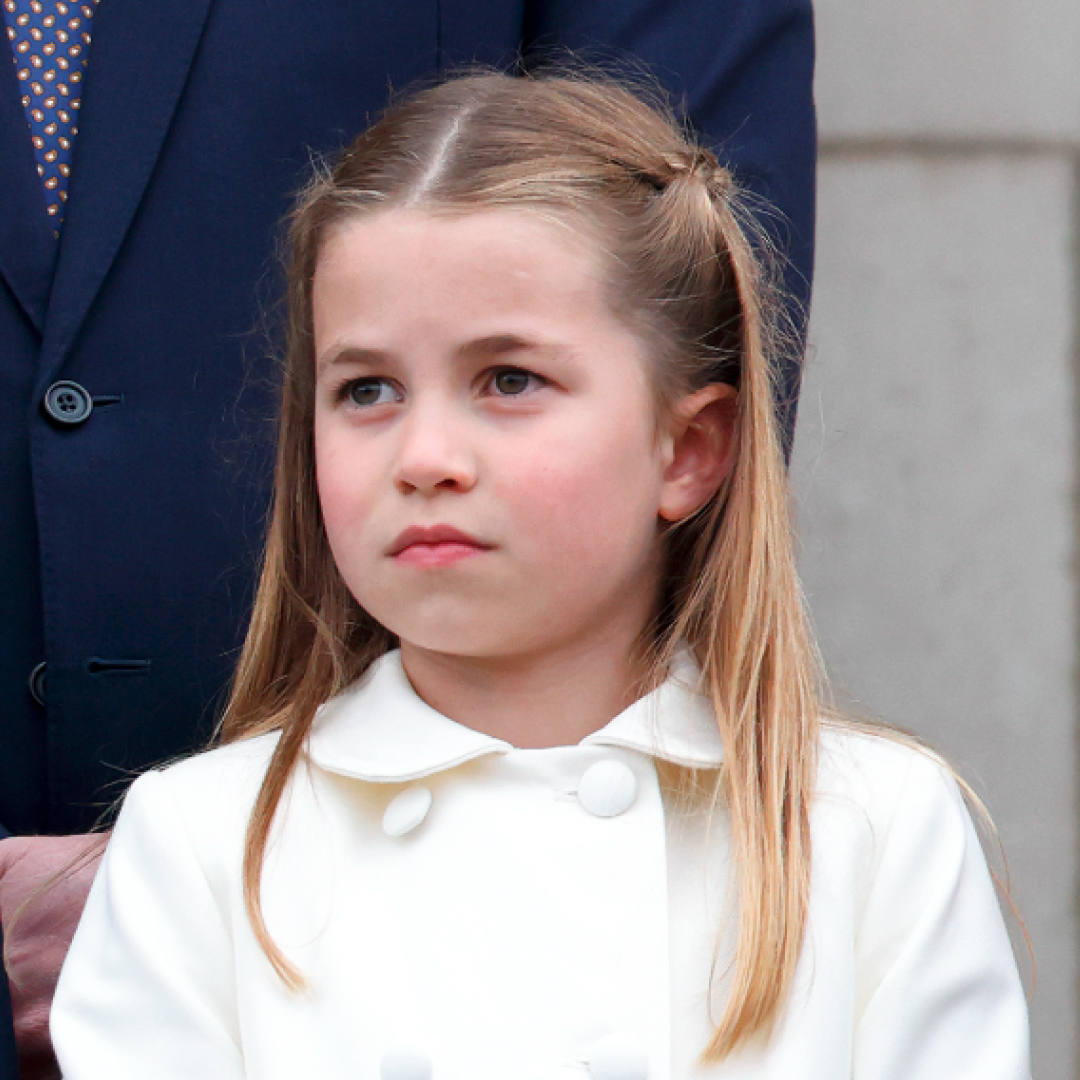 A Resurfaced Photo Reveals Charlotte's Royal Lookalike
A Resurfaced Photo Reveals Charlotte's Royal Lookalike"The Spencer genes are so strong."
By Amy Mackelden
-
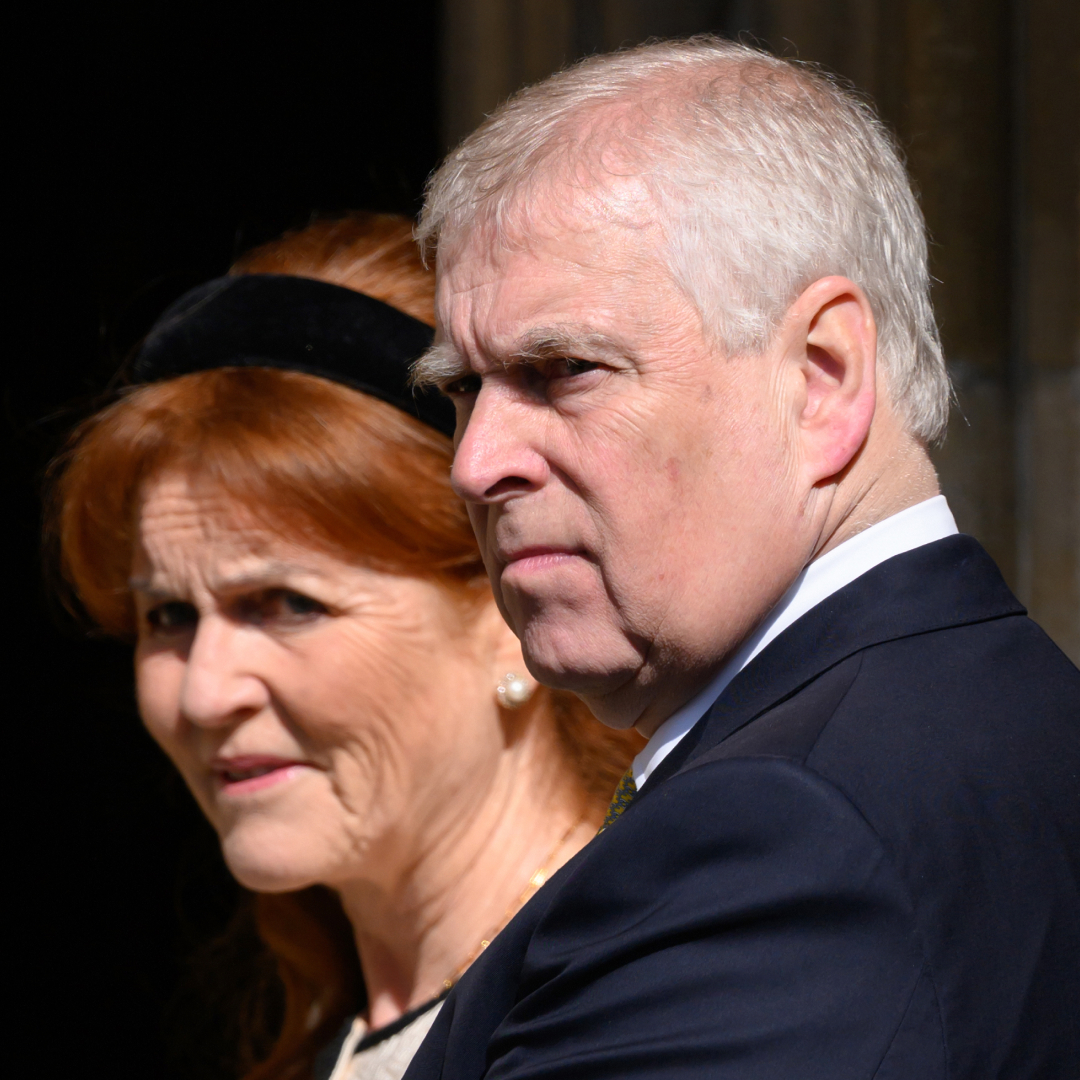 Why Prince Andrew Attended Royal Family's Easter Service
Why Prince Andrew Attended Royal Family's Easter ServiceIt was previously alleged King Charles's "patience was wearing thin" with his brother.
By Amy Mackelden
-
 Eva Mendes and Ryan Gosling Introduce the "Newest Member" of Their Family
Eva Mendes and Ryan Gosling Introduce the "Newest Member" of Their Family"I'm crazy about her and excited to share life."
By Amy Mackelden
-
 Jennifer Garner Is Reportedly Ready to Cut Ties With Jennifer Lopez, Unless Their Kids Are Involved
Jennifer Garner Is Reportedly Ready to Cut Ties With Jennifer Lopez, Unless Their Kids Are Involved"Her friends feel she shouldn't have allowed herself to get so involved."
By Amy Mackelden
-
 Hailey Bieber Shares Her First Photo of Baby Son Jack Blues Since Giving Birth—See the Sweet Shot
Hailey Bieber Shares Her First Photo of Baby Son Jack Blues Since Giving Birth—See the Sweet ShotSo freaking cute.
By Quinci LeGardye
-
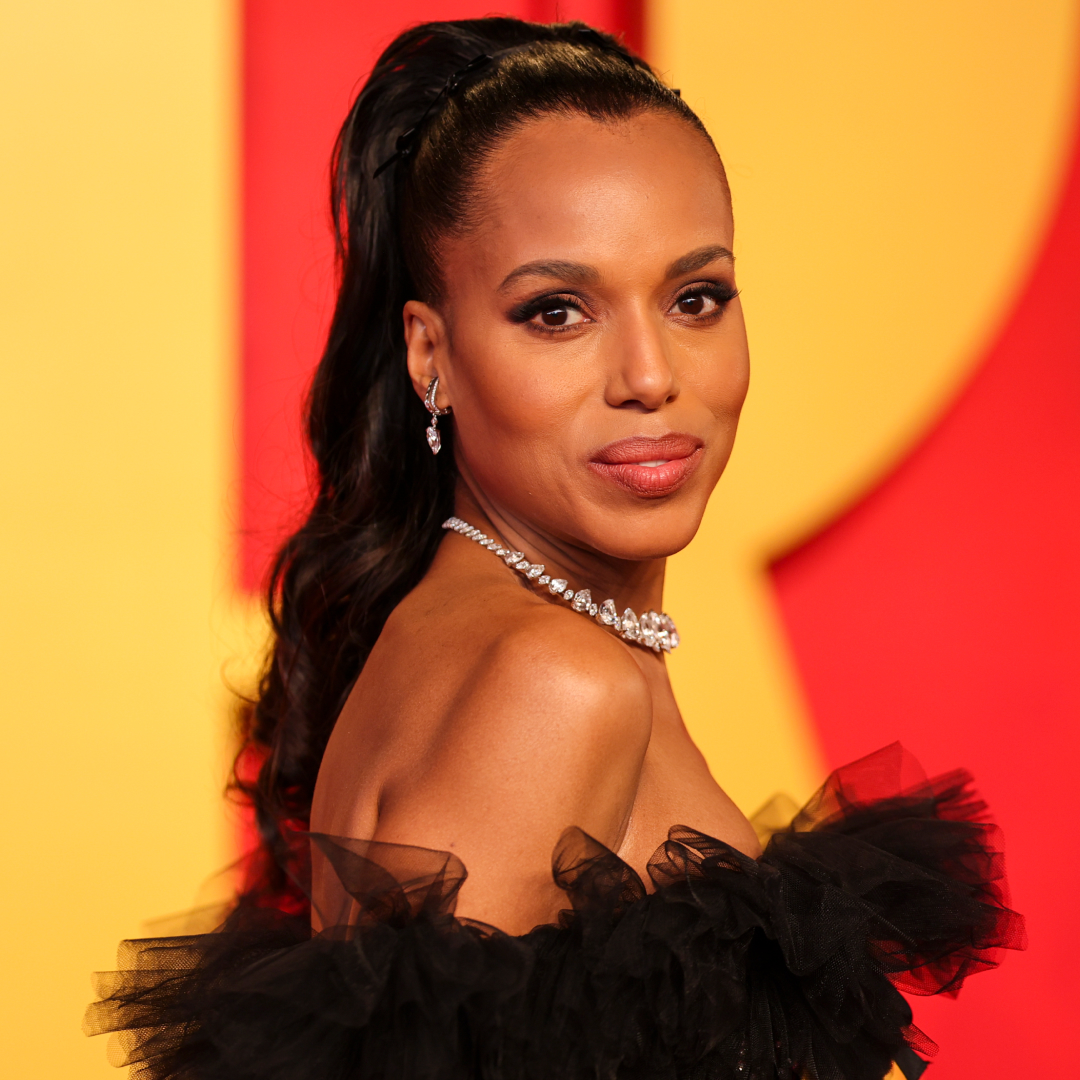 Actors Who Are Nothing Like Their Most Iconic Characters
Actors Who Are Nothing Like Their Most Iconic CharactersTalk about awards-worthy, transformative performances.
By Katherine J. Igoe
-
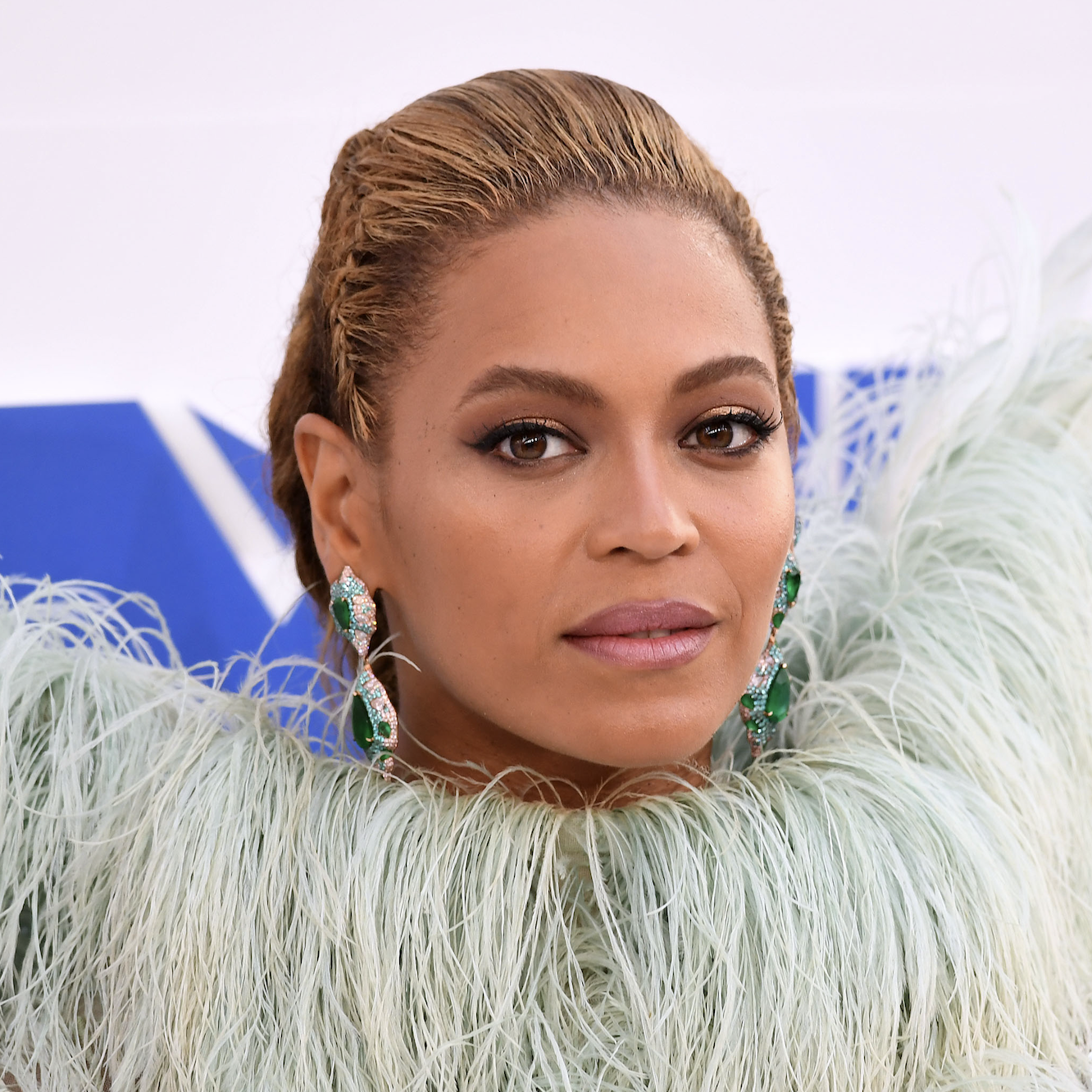 The Question on Everyone's Lips: Did Beyoncé Skip the 2024 MTV VMAs?
The Question on Everyone's Lips: Did Beyoncé Skip the 2024 MTV VMAs?It's been a few years since she last graced the carpet with her presence.
By Kelsey Stiegman
-
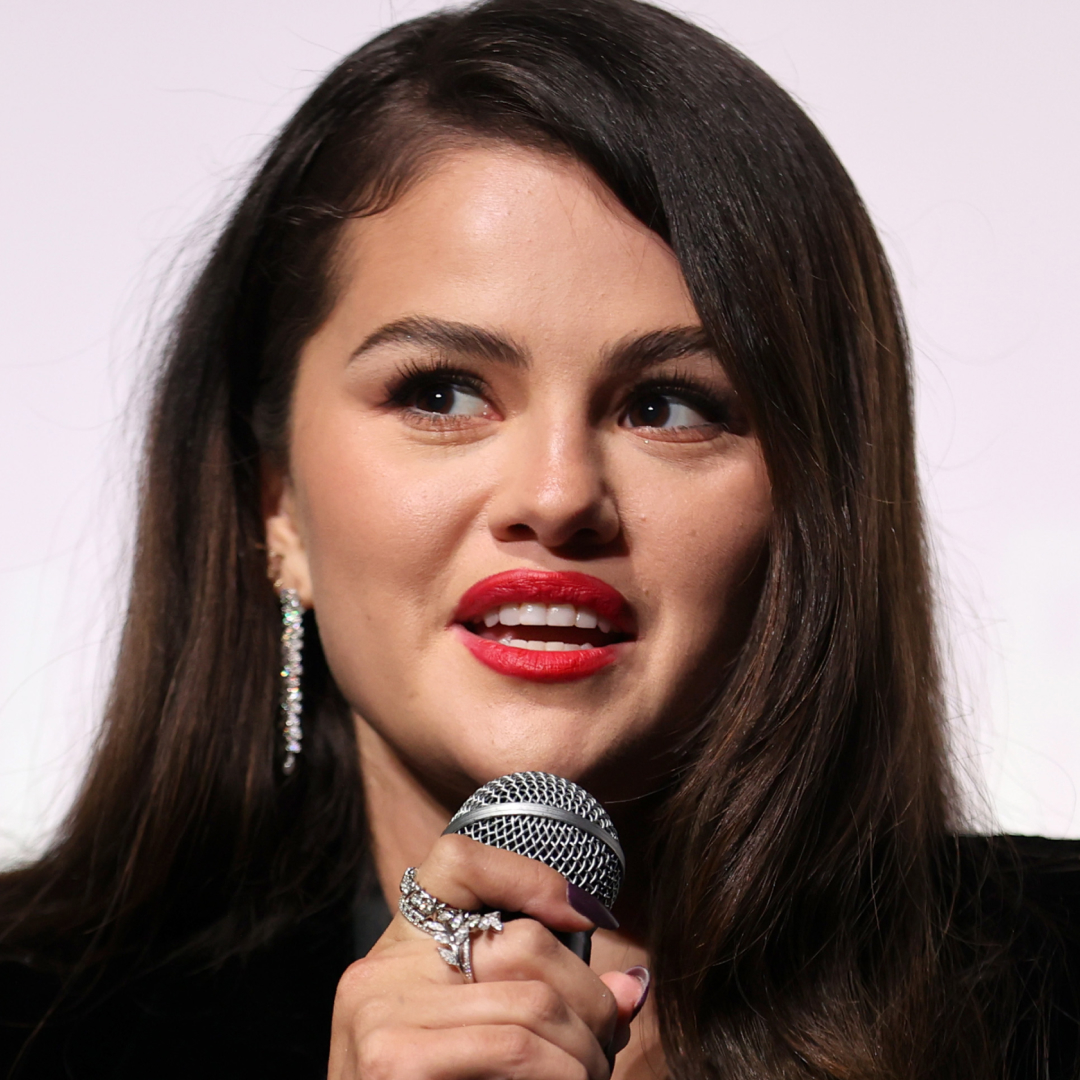 Why Isn't Selena Gomez at the 2024 VMAs?
Why Isn't Selena Gomez at the 2024 VMAs?Her absence became even more noticeable after her bestie Taylor Swift showed up.
By Hanna Lustig
-
 Jennifer Lopez Thought Ben Affleck Was a "Changed Man" But Being Married to Him Was "Impossible"
Jennifer Lopez Thought Ben Affleck Was a "Changed Man" But Being Married to Him Was "Impossible""Friends think he is selfish, sullen, impossible to please most of the time and negative."
By Amy Mackelden
-
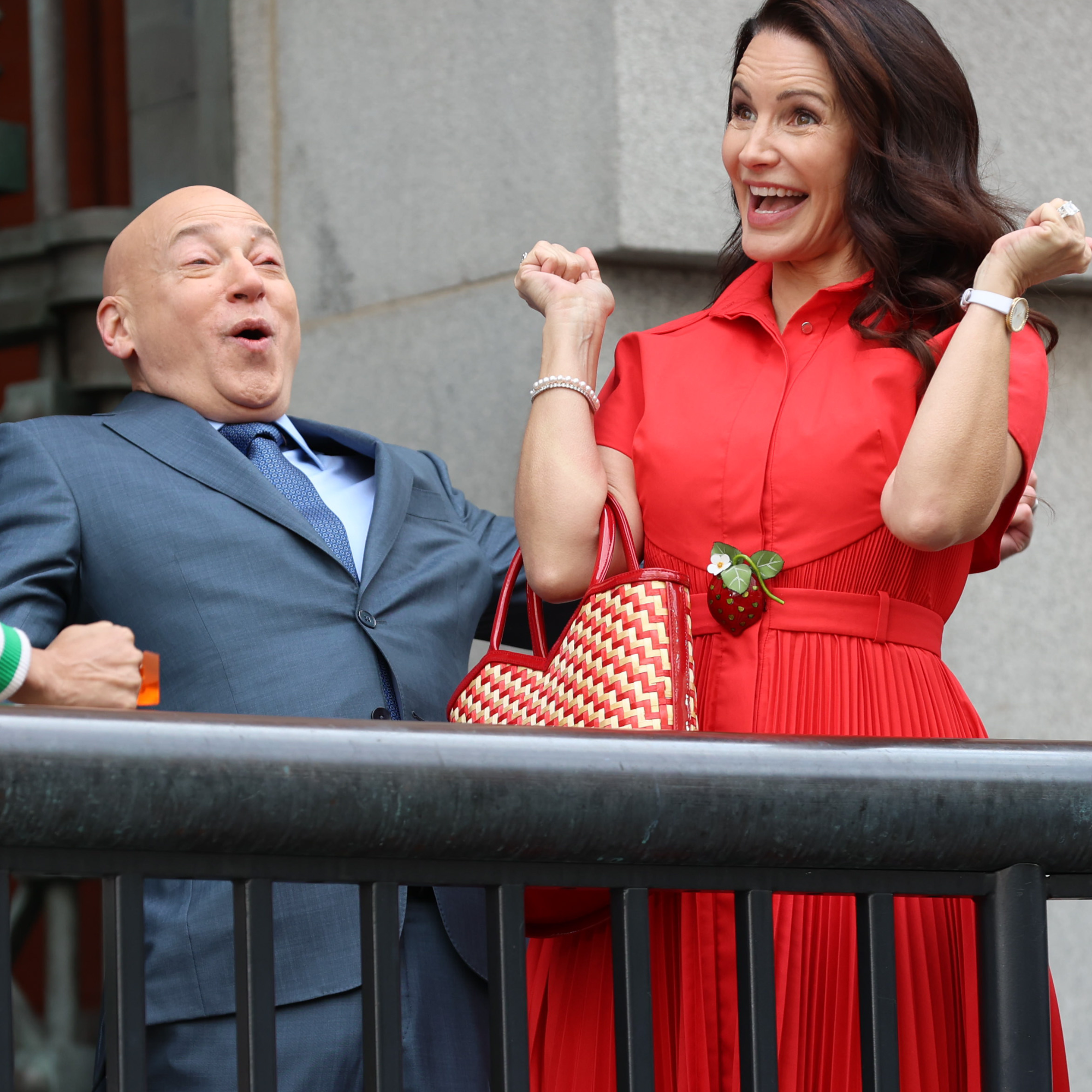 'SATC' Star Evan Handler Says He'll "Welcome" Kim Cattrall's Return on His TV Set
'SATC' Star Evan Handler Says He'll "Welcome" Kim Cattrall's Return on His TV SetShe didn't see anyone while filming her cameo.
By Iris Goldsztajn